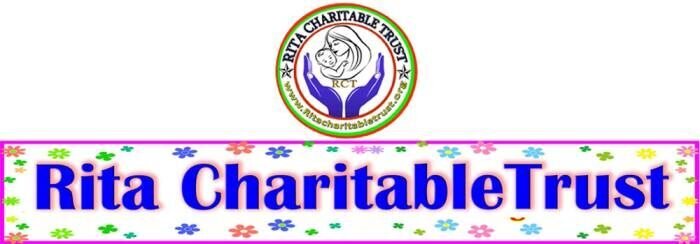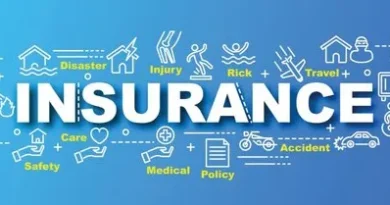Free Accounts Executive (Recording and Reporting) Course (6Months)
Accounts Executive (Recording and Reporting):

Brief Job Description:
Accounts Executive (Recording and Reporting) is
a person appointed by any company,
who is responsible for maintaining records of receipts, payments, provisions,
compilation of periodical Bank Reconciliation
Statement (BRS), preparation of
Depreciation schedule and presenting any other defined report to the Senior/Manager.
Personal Attributes:

The individual is required to have good understanding of
accounting processes and have problem solving skills. T
he individual must be self‐driven and organized with his
work and act with integrity when performing multiple tasks for the organization.

Recording Receipts (Other than from Customers):
Identifying and understanding the defined receipts
To be competent, the user/individual on the job must be able to:
PC1. Classify receipts other than from customers.
PC2. Understand and identify any interest income received by the company.
PC3. Understand and identify any commission received by the company.
PC4. Understand and identify any loan received by the company.
PC5. Understand and identify any refund received by the company.
PC6. Differentiate any other miscellaneous receipts in cash or otherwise by the
company. Receiving and acknowledging the receipts
To be competent, the user/individual on the job must be able to:
PC7. Obtain and verify the document on the basis of which the amount is received.
PC8. Receive such amount in cash or other mode on behalf of the company.
PC9. Match the amount in such document with the actual receipt.
PC10. Acknowledge such receipt on behalf of the company.
Generating transactional documents

To be competent, the user/individual on the job must be able to:
PC11. Obtain and access receipt voucher (in physical form/electronic mode).
PC12. Generate cash receipts in case cash is received.
PC13. Generate receipts in case of receipts through other banking instruments.
PC14. Check for receipt through NEFT into the company account.
PC15. Save all the above documents in electronic/physical form for future
reference/audit purpose.
PC16. Arrange in sequential order all the documents arising due to this transaction.
PC17. Seek approval from supervisor/Manager with whom such authority rests.
Recording the receipts into the books of accounts
To be competent, the user/individual on the job must be able to:
PC18. To have knowledge of the accounting software used by the company.
PC19. Seek and receive/make use of already existing login id required to operate the
software.
PC20. Identify and understand the various ledger accounts.
PC21. Classify the receipts into applicable ledger accounts.
PC22. Select the appropriate voucher type applicable for the transaction.
PC23. Record the transaction into the books of accounts by giving effect to the
respective accounts.
Maintaining records

To be competent, the user/individual on the job must be able to:
PC24. Understand the relevance of documents.
PC25. File the documents in chronological order to enable seamless retrieval of the
same in case of any requirement in the future.
PC26. Produce such documents as is needed at the time for clarifications.
PC27. Segregate the data, prepare and present quarterly, half-yearly reports as per
requirements.
PC28. Maintain details of receipts along with their account codes.
PC29. Prepare and present any other related report as per the requirement.
Perform General/Administrative Tasks
To be competent, the user/individual on the job must be able to:
PC30. Update details of receipt into information system/records.
PC31. Prepare and submit periodic reports on the nature of receipts to senior/
manager.
PC32. Discuss and set revenue/account targets with senior/manager if applicable.
PC33. Prepare and present reports on targets achieved.
Organizational Context
The user/individual on the job needs to know and understand:
KA1. The products/services the company deals in.
KA2. Different accounting system/procedure/processes that are followed by the company.
KA3. Organizational guidelines for dealing with different types of receipts.
KA4. Company’s policies regarding the mode of receipts.
KA5. Processes and methods of collections from different sources.

Technical Knowledge
The user/individual on the job needs to know and understand:
KB1. Thorough knowledge of Accounting Principles.
KB2. Basic accounting concepts and techniques for recording transactions.
KB3. Working knowledge of financial concepts such as calculation of interest amount,
VAT, Service Tax etc. and knowledge of tax laws and tariffs relevant to the business.
KB4. Have transaction processing knowledge.
KB5. Clear understanding about Invoice and particulars thereof.
KB6. Accounting processes and procedures to record the details of invoice.
KB7. The differentiation between invoice and other
supported documents (like Purchase Order, delivery challan etc.).
KB8. Procedures for digitally updating customer’s details.
KB9. IT skills and operating procedures of computers and other electronic devices.
KB10. Preparation of collection schedule, if required.
KB11. Use of computers and have working knowledge of MS Excel, MS Word
Generic Skills
Writing Skills
The user/ individual on the job needs to know and understand how to:
SA1. Prepare reports and summary of the receipts/payments for review.
SA2. Prepare reports on status of other receipts accounts.
SA3. Communicate and share knowledge with peers and supervisors.
Reading Skills
The user/individual on the job needs to know and understand how to:
SA4. Read and understand organizational and regulatory guidelines.
SA5. Read and verify legitimacy of documents submitted by concerned person.
SA6. Read and explain terms to the other party.
Integrity
The user/individual on the job needs to know and understand how to:
SA7. Maintain integrity with respect to sensitive documents
SA8. Act objectively and in the best interests of customers
Mathematical Skills
The user/individual on the job needs to know and understand how to:
SA9. Compute numbers quickly and accurately.
SA10. Perform basic mathematical operations such as addition, subtraction, multiplication and division
SA11. Calculate accurately any tax to be charged, discount allowed etc.,
w.r.t. the customer’s account as per the company policy
Oral Communication (Listening and Speaking skills)
user/individual on the job needs to know and understand how to:
SA1. Listen to the customers and be able to offer products that are pertinent to their requirements.
SA2. Communicate clearly with the customer using language that he/she understands.
SA3. Communicate and share knowledge with peers and supervisors.
Professional Skills
Decision Making
The user/individual on the job needs to know and understand how to:
SB1. Differentiate between the critical documents and its relevance in accounting.
SB2. Make clear, logical decisions regarding the upkeep of documents.
Plan and Organize
The user/individual on the job needs to know and understand how to:
SB3. Plan the work/tasks at hand.
SB4. Organize work & time in order to maximize productivity..
Problem Solving
The user/individual on the job needs to know and understand how to:
SB5. Address problems arising either due to a technical issue, customer
grievance or administration related issues and escalate those issues beyond one’s role.
Motivation and Critical Thinking
The user/individual on the job needs to know and understand how to:
SB6. Be self driven, take initiatives and deliver results set by the organization and respective seniors
SB7. Consistently obtain feedback and improve their performance.
SB8. Exercise judgment in unforeseen situations which preserve company values and are in line with organizational guidelines.
Attention to detail
The user/individual on the job needs to know and understand how to:
SB9. Check whether the work is complete and free from errors.
SB10. Get the work checked by others.
Team work
The user/individual on the job needs to know and understand how to:
SB11. Contribute to the quality of team working.
SB12. Work effectively in a team environment.
Technical Skills
The user/individual on the job needs to know and understand how to:
SC1. Use information technology effectively to input and/or extract data accurately.
SC2. Identify and refer anomalies in the data.SC3. Store and retrieve information.
SC4. Keep updated with changes, procedures and practices in the role.
SC5. Use software packages and tools specific to the field of expertise
Recording payments (Other than to suppliers):
Identifying and understanding the defined payments
To be competent, the user/individual on the job must be able to:
PC1. Classify payments other than to suppliers.
PC2. Understand and identify any interest payments to be made by the company.
PC3. Understand and identify any commission to be paid by the company.
PC4. Understand and identify any loan repayment to be made by the company.
PC5. Understand and identify any payment to employees (like travel advance,
reimbursement of expenses etc.).
PC6. Differentiate any other miscellaneous payment to be made by the company.
Verification of the documents
To be competent, the user/individual on the job must be able to:
PC7. Obtain the documents based on which payment has to be made.
PC8. Verify and validate such document and assess whether the document is
complete.
PC9. Gather additional documents pertaining to any special requirement.
Generating transactional documents
To be competent, the user/individual on the job must be able to:
PC10. Obtain and have access to the payment voucher in physical form or through
electronic mode.
PC11. Understand the contents of the same.
PC12. Attach the reference document and note the date of payment mentioned on
it.
PC13. Ascertain the supplier’s name and record it correctly while creating
transactional documents.
PC14. Ascertain the amount payable to the supplier after giving effect to any tax
laws applicable to the case.
PC15. Determine the mode of payment.
PC16. Seek approval from supervisor/Manager with whom such authority rests, for
preparing for the mode of payment to the supplier.
Preparing mode of payment
To be competent, the user/individual on the job must be able to:
PC17. Determine whether the amount is payable through cash or by any other
mode.
PC18. Determine the bank through which the payment has to be made.
PC19. Understand and fill-up the particulars in the cheque or any other banking
instrument.PC20. Create and manage beneficiary list in case of payment through internet
banking.
PC21. Compare, verify and record the amount payable to the supplier from the
documents received from them.
PC22. Seek approval from supervisor/Manager with whom such authority rests, for
releasing the payment to the supplier.
PC23. Update the payment voucher with the payment details.
Recording payments in the books of accounts
To be competent, the user/individual on the job must be able to:
PC24. To have knowledge of the accounting software used by the company.
PC25. Seek and receive/make use of already existing login id required to operate the
software.
PC26. Identify and understand the various ledger accounts.
PC27. Classify the payments into applicable ledger accounts.
PC28. Select the appropriate voucher type applicable for the transaction.
PC29. Record the transaction into the books of accounts by giving effect to the
respective accounts.
Maintaining records
To be competent, the user/individual on the job must be able to:
PC30. Understand the relevance of documents.
PC31. File the documents in chronological order to enable seamless retrieval of the
same in case of any requirement in the future.
PC32. Produce such documents as is needed at the time for clarifications.
PC33. Segregate the data, prepare and present quarterly, half-yearly reports as per
requirements.
PC34. Maintain details of payments along with their account codes.
PC35. Prepare and present any other related report as per the requirement.
Perform General/Administrative Tasks
To be competent, the user/individual on the job must be able to:
PC36. Update details of payments into information system/records.
PC37. Prepare and submit periodic reports on the nature of payments to senior/
manager.
PC38. Discuss and set revenue/account targets with senior/manager if applicable.
PC39. Prepare and present reports on targets achieved.
Organizational Context
The user/individual on the job needs to know and understand:
KA1. The products/services the company deals in.
KA2. Different accounting processes that are followed by the company.
KA3. Organizational guidelines for dealing with different types of suppliers.
KA4. Company’s policies regarding the credit period allowed by suppliers.
KA5. Processes and methods of payment to suppliers.
Technical Knowledge
The user/individual on the job needs to know and understand:
KB1. Thorough knowledge of Accounting Principles.
KB2. Basic accounting concepts and techniques for recording transactions.
KB3. Working knowledge of financial concepts such as calculation of interest amount, VAT, Service Tax etc.
KB4. Check whether financial transactions of the organization conform
to the prescribed financial rules and regulations.
KB5. Have transaction processing knowledge.
KB6. Clear understanding about Invoice and particulars thereof.
KB7. Accounting processes and procedures to record the details of invoice.
KB8. The differentiation between invoice and other supported documents (like Purchase Order, delivery challan etc.).
KB9. Procedures for digitally updating suppliers’ details.
KB10. IT skills and operating procedures of computers and other electronic devices.
KB11. Preparation of payment schedule, if required.
KB12. Use of computers and have working knowledge of MS Excel, MS Word etc.
Generic Skills
Writing Skills
The user/ individual on the job needs to know and understand how to:
SA1. Prepare reports and summary of the receipts for review.
SA2. Prepare reports on status of other receipts accounts.
SA3. Communicate and share knowledge with peers and supervisors.
Reading Skills
The user/individual on the job needs to know and understand how to:
SA4. Read and understand organizational and regulatory guidelines
SA5. Read and verify legitimacy of documents submitted by the concerned person
SA6. Read and explain terms of receipts to the other party.
Integrity
The user/individual on the job needs to know and understand how to:
SA7. Maintain integrity with respect to sensitive documents.
SA8. Act objectively and in the best interests of the company.
Mathematical Skills
The user/individual on the job needs to know and understand how to:
SA9. Compute numbers quickly and accurately.
SA10. Perform basic mathematical operations such as addition, subtraction, multiplication and division.
SA11. Calculate accurately any tax to be charged, discount allowed etc.,
w.r.t. the customer’s account as per the company policy.
Professional Skills
Decision Making
The user/individual on the job needs to know and understand how to:
SB1. Differentiate between the critical documents and its relevance in accounting.
SB2. Make clear, logical decisions regarding the upkeep of documents.
Plan and Organize
The user/individual on the job needs to know and understand how to:
SB3. Plan the work/tasks at hand.
SB4. Organize work & time in order to maximize productivity.
Problem Solving
The user/individual on the job needs to know and understand how to:
SB5. Address problems arising either due to a technical issue, customer grievance
or administration related issues and escalate those issues beyond one’s role.
Motivation and Critical Thinking
The user/individual on the job needs to know and understand how to:
SB6. Be self driven, take initiatives and deliver results set by the organization and respective superiors
SB7. Consistently obtain feedback and improve their performance
SB8. Exercise judgment in unforeseen situations which preserve company
values and are in line with organizational guidelines.
Attention to detail
The user/individual on the job needs to know and understand how to:
SB9. Check whether the work is complete and free from errors.
SB10. Get the work checked by others Team work
The user/individual on the job needs to know and understand how to:
SB11. Contribute to the quality of team working.
SB12. Work effectively in a team environment
Technical Skills
The user/individual on the job needs to know and understand how to:
SC1. Use information technology effectively to input and/or extract data accurately.
SC2. Identify and refer anomalies in the data.
SC3. Store and retrieve information.
SC4. Keep updated with changes, procedures and practices in the role.
SC5. Use software packages and tools specific to the field of expertise.
Recording for Provisions:
Understanding the concept of provisions
To be competent, the user/individual on the job must be able to:
PC1. Understand the concept of creating provisions for certain expenses/doubtful
debts.
PC2. Obtain all the related documents based on which provisions are to be made.
PC3. Analyse the pattern of related receipts/payments and its effects on the normal
business transactions.
PC4. Understand the business/company policy regarding booking of provisions.
PC5. Understand and differentiate the expenses pertaining to the current financial
year and those covering a period beyond.
PC6. Segregate the amount of expenses relating to the current financial year.
Providing for doubtful debts
To be competent, the user/individual on the job must be able to:
PC7. Understand the company policy regarding creation of provisions for
bad/doubtful debts.
PC8. Have access to and obtain all related documents and reports (like periodical
collection report or overdue account reports etc.) based on which provisions
are to be created.
PC9. Verify, validate and analyse the documents and calculate the amount to be
provided for as provision.
PC10. Have knowledge of accounting software used by the company (if applicable).
PC11. Have access to voucher book in physical form or electronic mode.
PC12. Provide working sheet/ calculation detail clarifying the calculation of the
amount to be provided for.
PC13. Arrange the documents in sequential order along with working papers.
PC14. Seek approval from Senior/ Manager of the amount to be provided for as
provisions.
PC15. Select the appropriate voucher type to record this transaction.
PC16. Identify and understand the applicable ledger accounts.
PC17. Record the transaction into the books of accounts by giving effect to the
respective accounts.
Providing for expenses
To be competent, the user/individual on the job must be able to:
PC18. Understand the company policy regarding creation of provisions for certain
expenses.
PC19. Have access to and obtain all related documents and reports (like monthly
expenses data sheet or referred to by any other term or any other report etc.)
based on which provision are to be created.
PC20. Verify, validate and analyse the documents and calculate the amount to be
provided for as provision.
PC21. Have knowledge of accounting software used by the company (if applicable).
PC22. Have access to voucher book in physical form or electronic mode.
PC23. Provide working sheet/ calculation detail clarifying the calculation of the
amount to be provided for.
PC24. Arrange the documents in sequential order along with working papers.
PC25. Seek approval from Senior/ Manager of the amount to be provided for as
provisions.
PC26. Select the appropriate voucher type to record this transaction.
PC27. Identify and understand the applicable ledger accounts.
PC28. Record the transaction into the books of accounts by giving effect to the
respective accounts.
Providing for prepaid expenses
To be competent, the user/individual on the job must be able to:
PC29. Understand the expenses that are prepaid in nature (i.e.) covering for a
period beyond the current financial year (like insurance expenses, Annual
Maintenance Contract (AMC) expenses etc.)
PC30. Ascertain all such expenses incurred during the period.
PC31. Have access to and obtain all such documents that are needed for calculation
of prepaid expenses.
PC32. Have knowledge of accounting software used by the company (if applicable).
PC33. Have access to voucher book in physical form or electronic mode.
PC34. Prepare working papers/ calculation sheets giving details of all such expenses
and the extent of prepaid expenses applicable to the financial year.
PC35. Arrange the documents in sequential order along with working papers.
PC36. Seek approval from Senior/ Manager of the amount to be provided for as
provisions.
PC37. Select the appropriate voucher type to record this transaction.
PC38. Identify and understand the applicable ledger accounts.
PC39. Record the transaction into the books of accounts by giving effect to the
respective accounts.
PC40. File the documents in chronological order to enable seamless retrieval of the
same in case of any requirement in the future.
PC41. Segregate the data, prepare and present reports as per requirements.
Perform General/Administrative Tasks
To be competent, the user/individual on the job must be able to:
PC42. Update details of payments into information system/records.
PC43. Prepare and submit periodic reports on the nature of payments to
senior/ manager.
PC44. Discuss and set revenue/account targets with senior/manager if applicable.
PC45. Prepare and present reports on targets achieved.
Organizational Context
The user/individual on the job needs to know and understand:
KA1. The products/services the company deals in.
KA2. Different accounting processes that are followed by the company.
KA3. Organizational guidelines for dealing with different types of suppliers.
KA4. Company’s policies regarding the credit period allowed by suppliers.
KA5. Processes and methods of payment to suppliers.
. Technical Knowledge
The user/individual on the job needs to know and understand:
KB1. Thorough knowledge of Accounting Principles.
KB2. Basic accounting concepts and techniques for recording transactions.
KB3. Working knowledge of financial concepts such as calculation of interest amount, VAT,
Service Tax etc. KB4. Check whether financial transactions of the organization
conform to the prescribed financial rules and regulations.
KB5. Have transaction processing knowledge.
KB6. Clear understanding about Invoice and particulars thereof.
KB7. Accounting processes and procedures to record the details of invoice.
KB8. The differentiation between invoice and other supported
documents (like Purchase Order, delivery challan etc.).
KB9. Procedures for digitally updating suppliers’ details.
KB10. IT skills and operating procedures of computers and other electronic devices.
KB11. Preparation of payment schedule, if required.
KB12. Use of computers and have working knowledge of MS Excel, MS Word etc.
Generic Skills
Writing Skills
The user/ individual on the job needs to know and understand how to:
SA1. Prepare reports and summary of the collections for review.
SA2. Prepare reports on status of overdue customers’ accounts.
SA3. Communicate and share knowledge with peers and supervisors.
Reading Skills
The user/individual on the job needs to know and understand how to:
SA4. Read and understand organizational and regulatory guidelines.
SA5. Read and verify legitimacy of documents submitted by customers.
SA6. Read and explain terms of collections to customers
Integrity
The user/individual on the job needs to know and understand how to:
SA7. Maintain integrity with respect to sensitive documents.
SA8. Act objectively and in the best interests of the company.
Mathematical Skills
The user/individual on the job needs to know and understand how to:
SA9. Compute numbers quickly and accurately.
SA10. Perform basic mathematical operations such as addition, subtraction, multiplication and division.
SA11. Calculate accurately any tax to be charged, discount allowed etc., w.r.t. the customer’s account as per the company policy.
Professional Skills
Decision Making
The user/individual on the job needs to know and understand how to:
SB1. Differentiate between the critical documents and its relevance in accounting.
SB2. Make clear, logical decisions regarding the upkeep of documents.
Plan and Organize
The user/individual on the job needs to know and understand how to:
SB3. Plan the work/tasks at hand.
SB4. Organize work & time in order to maximize productivity.
SB5. Liaison with customers.
Problem Solving
The user/individual on the job needs to know and understand how to:
SB6. Address problems arising either due to a technical issue, customer grievance or administration related issues and escalate those issues beyond one’s role
Motivation
The user/individual on the job needs to know and understand how to:
SB7. Be self driven, take initiatives and deliver results set by the organization and respective seniors.
Critical Thinking
The user/individual on the job needs to know and understand how to:
SB8. Consistently obtain feedback and improve their performance
SB9. Exercise judgment in unforeseen situations which preserve company values and are in line with organizational guidelines
Attention to detail
The user/individual on the job needs to know and understand how to:
SB10. Check whether the work is complete and free from errors.
SB11. Get the work checked by others
Team Work
The user/individual on the job needs to know and understand how to:
SB12. Contribute to the quality of team working.
SB13. Work effectively in a team environment.
Technical Skills
The user/individual on the job needs to know and understand how to:
SC1. Use information technology effectively to input and/or extract data accurately.
SC2. Identify and refer anomalies in the data.
SC3. Store and retrieve information.
SC4. Keep updated with changes, procedures and practices in the role.
SC5. Use software packages and tools specific to the field of expertise








